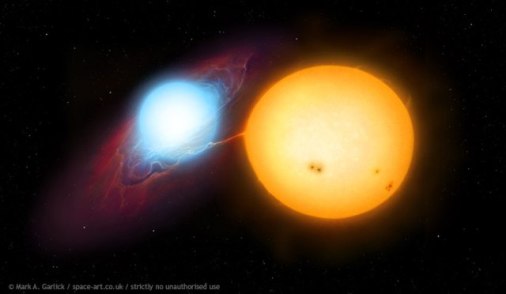|
Date + Time ................................
11/04/2020 - 19:00 UTC
Location ....................................
"Nunki Observatory" - Skiathos
Optics .........................................
Officina Stellare Advanced RILA 400 f/5.25
Tools .......................................... THE SKY
X
Camera ......................................
SBIG
STXL11002 with FW8G-STXL (Astrodon
filters)
Exposure Time.........................
Rc: 5.3 Hours
Mount ....................................... Paramount
ME
Guiding .................................... Unguided
Processing Details .................. ACP , Muniwin
More Details ...........................
Environment Temperature : 13 oC Camera Temperature -25 οC
Sky temperature ..................... 12.0. οC
Notes ........................................ Weather:
Clear Transparence:
Medium
Humidity : 75-85%
Moon Illumination ............... 72%

Target details .........................
NL / VY+E
NL
Nova-like stars. Cataclysmic variables where the mass
transfer rate is above a certain limit and their accretion disks are
stable because they are nearly fully ionized to their outer (tidal
cut off) boundary and this condition suppresses dwarf nova
outbursts. Also known as UX (UX
Ursae Majoris stars).
VY
VY Scl subtype. They are cataclysmic binary systems
with a hot (35,000-65,000 K) and luminous white dwarf that
occasionally undergo fadings of more than 1 magnitude (up to several
magnitudes) due to a low rate of mass transfer. These fadings might
last from days to years. At maximum they vary up to 1 magnitude.
They are usually nova-like variables that show no outbursts but some
dwarf nnovae also show similar fadings. Orbital periods usually
range between 0.12 and 0.18 d.
Examples: VY
Scl, MV
Lyr.

'The Artistic Image above, reproduced courtesy of Mark A. Garlick / markgarlick.com.
No unauthorized use". |